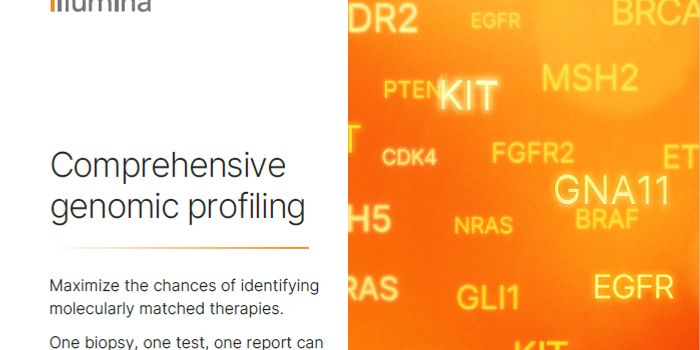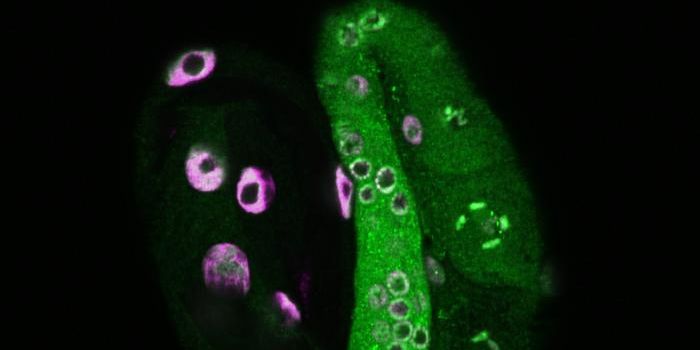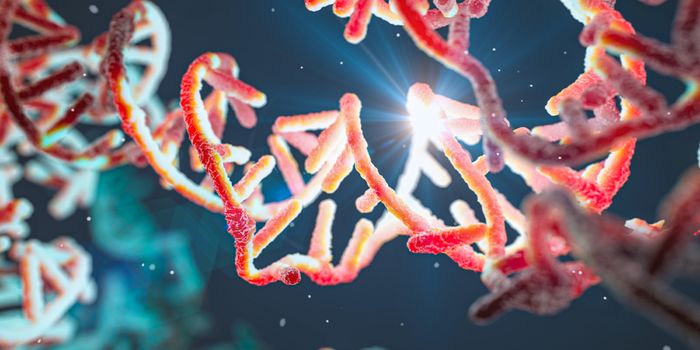HIV Infection Seems to Dramatically Accelerate the Aging Process
Though there is no standard of normal aging, people with HIV tend to get age-related diseases at younger ages compared to uninfected individuals. To learn more about why aging seems to be accelerated in HIV patients, researchers investigated the epigenetic profiles of people living with HIV. Epigenetic factors can influence gene expression, and some are heritable, though they do not alter the genetic sequence.
Reporting in iScience, investigators determined that within three years of an HIV infection, epigenetic changes occured; telomeres got shorter, and there were changes in methylation patterns. Short telomeres are a hallmark of aging, and methyl groups are one of the most common epigenetic markers.
This research has suggested that while HIV infections can be controlled with medications, these infections may still reduce a person's lifespan by five years compared to uninfected people.
"Our work demonstrates that even in the early months and years of living with HIV, the virus has already set into motion an accelerated aging process at the DNA level," said lead study author Elizabeth Crabb Breen, a Professor at UCLA. "This emphasizes the critical importance of early HIV diagnosis and an awareness of aging-related problems, as well as the value of preventing HIV infection in the first place."
In this study, the researchers analyzed blood samples that had been collected from 100 men within six months of an HIV infection, then again two to three years later. These samples were compared to an equal number that had been collected from 100 uninfected men during the same study period. The analysis focused on methyl groups that are attached to DNA, and how methylation patterns changed, as well as telomere length, which has long been associated with aging. As cell divide, telomeres get shorter and shorter until they no longer divide, so very short telomeres can be found in advanced states of aging.
This work indicated that in HIV patients, epigenetic markers of aging were more advanced. Aging had been accelerated by 1.9 to 4.8 years in HIV patients, who also had shorter telomeres.
The study authors acknowledged some limitations to this work; for example, they only studied men, and not women with HIV. There were also not enough patients to assess how active antiretrovirals might influence this observation.
This work can still help scientists and clinicians learn more about why aging advances in HIV patients.
"Our long-term goal is to determine whether we can use any of these signatures to predict whether an individual is at increased risk for specific aging-related disease outcomes, thus exposing new targets for intervention therapeutics," said senior study author Beth Jamieson, a professor at UCLA.
Sources: University of California, Los Angeles, iScience



![WGS for rare disease diagnosis [eBook]](https://d3bkbkx82g74b8.cloudfront.net/eyJidWNrZXQiOiJsYWJyb290cy1pbWFnZXMiLCJrZXkiOiJjb250ZW50X2FydGljbGVfcHJvZmlsZV9pbWFnZV84MmRlM2UyYjA5M2Q3ZTYwOTI3Zjc1YTRjOWU2N2RmMjkzMThjMTJkXzI1MDcucG5nIiwiZWRpdHMiOnsidG9Gb3JtYXQiOiJqcGciLCJyZXNpemUiOnsid2lkdGgiOjcwMCwiaGVpZ2h0IjozNTAsImZpdCI6ImNvdmVyIiwicG9zaXRpb24iOiJjZW50ZXIiLCJiYWNrZ3JvdW5kIjoiI2ZmZiJ9LCJmbGF0dGVuIjp7ImJhY2tncm91bmQiOiIjZmZmIn19fQ==)





